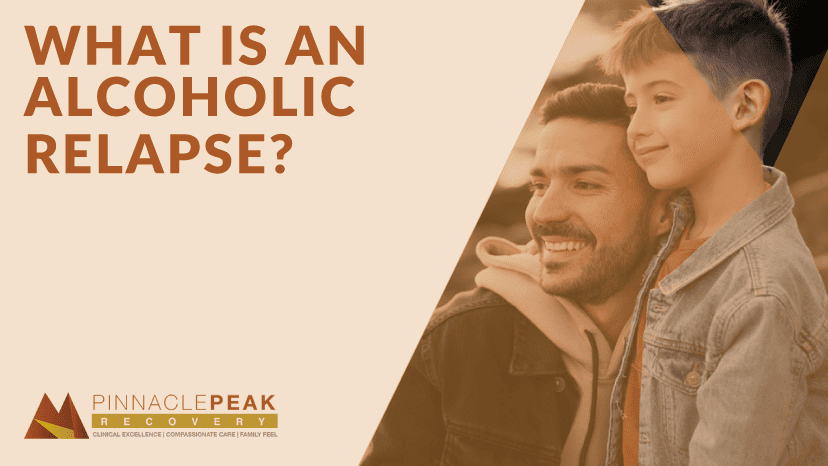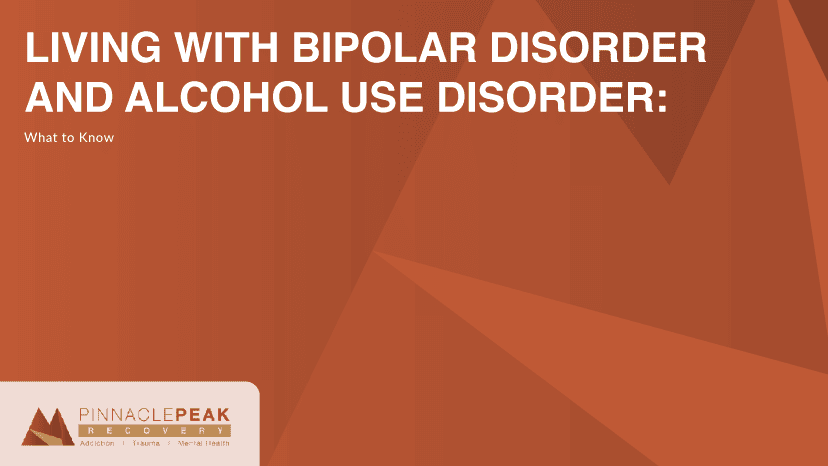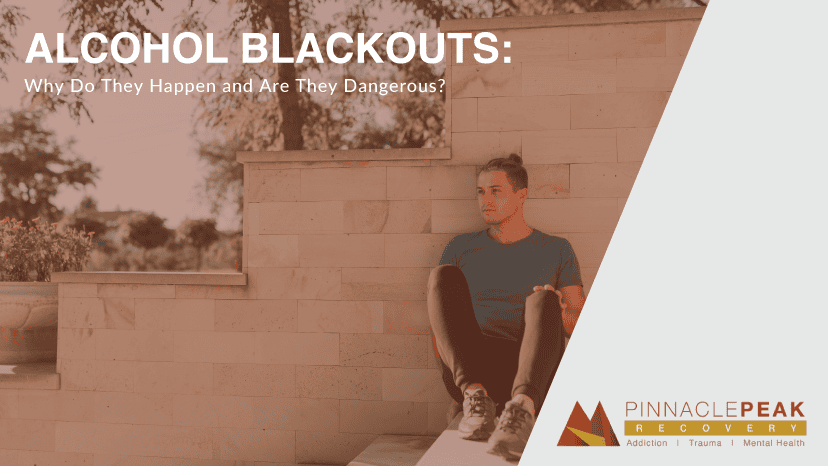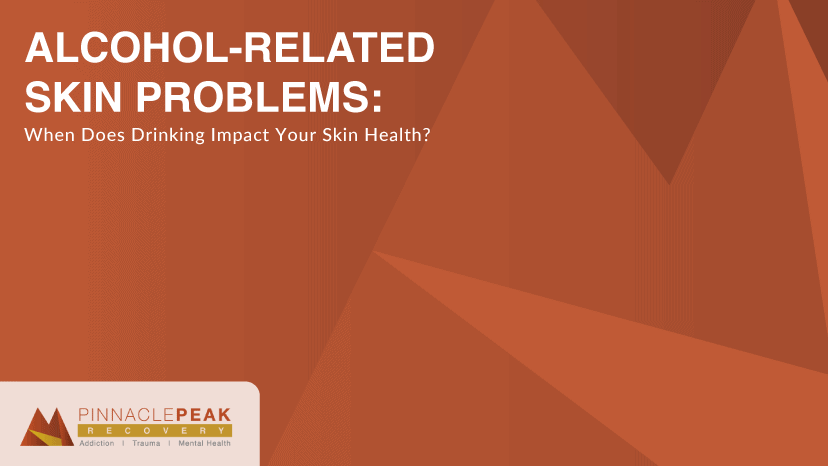Alcoholic Relapse

16.7% of adults in Arizona participate in excessive drinking. While binge drinking doesn’t always mean someone has an alcohol use disorder (commonly referred to as alcoholism), it can be a component that leads to it.
Alcohol is a substance that affects many families across America. It’s commonplace in many events, from weddings to the Super Bowl. This can make an alcohol use disorder much harder to spot, even in the person themself. So what if you like to have a drink or two sometimes? Sure, you find it hard to resist and think about it outside your home or when doing other things, but it’s fine.
For those who desire to cut back on their drinking habits, whether of their own choice or through the persuasion of loved ones, alcoholic relapse isn’t uncommon, but it’s essential to know that it doesn’t mean you “failed.” Here at Pinnacle Peak Recovery, we find it important to emphasize that recovery isn’t a straight road, and a relapse doesn’t mean that road has ended. In order to properly talk about recovery, though, we need to first talk about what defines a relapse, things that can trigger one, and how you can move forward from it.
What Is an Alcoholic Relapse?
To put it simply, a “relapse” occurs when someone breaks their promise to themselves or others to stop or reduce their consumption habits. Normally this also includes returning to the same level of use that was being seen before treatment or intervention.
The Percentage of People That Make It Through an AA Program
There are many different alcohol treatment programs built to help address use disorders, but one of the most prominent is “AA” or Alcoholics Anonymous. It’s a 12-step program that has been widely adapted both across the country and around the world.
While no treatment program is perfect for everyone, studies show that the 12-step program utilized by AA is 60% “effective” on average. This means that for 2 out of every 3 members that utilize the AA program, they see reduced or stopped alcohol use. The “success” rate isn’t always measured by total abstinence but also looks at reduced health and mental health costs, too.
Mental Disorders That Can Contribute to Having a Relapse
Mental health and substance use can often go hand in hand. This can stem both from untreated mental health causing a person to rely on substance use to self-medicate, or a mental illness developing as a result of substance use. Sometimes, the situations that stem from substance use can also contribute to mental health. Because of this, a person’s mental health can also be a contributing factor to relapse.
While no mental health concern will ever guarantee that someone turns to substance or alcohol use when someone has a “co-occurring disorder,” the two can act like triggers for each other. A co-occurring disorder is when someone is managing both substance or alcohol use alongside mental health. The feelings of depression creeping in can remind you of the drinks you used to have to combat that, and having a sip of beer could also make you think of how you had a panic attack after a hangover before. When dealing with both, it’s important both are properly addressed in treatment in order to help a person achieve long-term recovery.
Again, this doesn’t mean that relapse is the end of your journey. If you’re more prepared to deal with triggers for both your alcohol use and your mental health, you’re more likely to be able to take the steps you need before or after a relapse to continue on the path you want to be on.
The Stages of Alcoholic Relapse
One person’s experience with relapse will never be exactly the same as another person's. There is no exact timeline or trigger that is universal. That being said, a relapse can impact a person in a variety of ways. Let’s go over some of the different aspects of relapse and how they can affect you or your loved one.
Emotional Stage
The emotional aspect of relapse relates to the feelings and decisions that could lead to a relapse. There are many things that can contribute to this stage of potential relapse. It’s important to note that just because you start feeling things that relate to this stage, doesn’t mean that you’re inevitably going to drink again, especially if you’re aware of it and don’t want to.
This part of relapse involves withdrawing yourself from the new things you’ve started doing, or old hobbies you’ve returned to. This can mean skipping out on family events or meetings related to your recovery. It can also apply to the things you’re feeling regarding your life, whether that’s stress, anxiety, depression, or more. Oftentimes, these feelings were ones you used to “manage” with alcohol use, making them a trigger.
Mental Stage
The mental stage of relapse refers to the thoughts and things you might start thinking in order to convince yourself that this is the decision you want to make. We like to try and justify our actions, no matter what it is that we are doing. Not sure of the paint color you chose for your wall – “It’s not that bad in the sunlight!” Maybe you’re unsure if the new haircut you got – “Ahh I’m sure I can comb it and it’ll be fine.” This can apply to alcohol use.
“I’m on vacation, I can have a drink.”
“It’s just one tonight, it can’t hurt.”
“I’ve stopped before, I can stop again.”
These thoughts can quickly lead to the physical stage of relapse.
Physical Stage
The physical stage is when you finally decide to consume alcohol again. You’ve already convinced yourself that it’s okay. You might think that “it’s only one drink.” Breaking this internal contract with yourself, however, can lead to more instances down the road where you continue to let yourself “get away with it.”
Even if you’ve gotten to this stage, it’s never too late to continue your recovery journey.
The Warning Signs of Potential Relapse
If you find yourself withdrawing from activities you were starting to enjoy, thinking about past alcohol use fondly, debating with yourself if you should or shouldn’t have another drink – these and more are all signs that you might need a little extra support. Support systems are there for a reason, and you’re certainly not alone. This issue is one that many have faced and many have overcome. Don’t be afraid to reach out to your fellow people in recovery, your sponsor, your therapist, or even a family member.
Getting Treatment for Alcohol Use Disorder
If you’ve been through treatment before, you always have the option to return if you want to. Not everyone who comes to treatment for an alcohol use disorder has to be going through alcohol withdrawal or on the brink of experiencing alcohol poisoning. It’s not uncommon for us to have people who just need some additional support during their recovery journey.
We do offer every aspect of AUD recovery here at Pinnacle Peak Recovery. Our team is equipped to help with every stage of the process, from detox to inpatient and outpatient. Our medically trained and licensed staff will work with you to help determine your best treatment plan options and be there to support you along the way.
Beating an Alcohol Relapse
If you’ve relapsed from your recovery journey, that doesn’t mean you have to “start over.” For some, this might be a sign to step away from their current environment and go back into an inpatient program for a little bit. For others, this could mean signing back up for a more structured outpatient treatment program where you have people you meet with on a regular basis who can check in on you while you continue with your current routine and lifestyle. Whatever the case may be, we’re here to help.
If you have any questions about our Pinnacle Peak facility, recovery programs, or more, feel free to give us a call at (866) 377-4761. We want to see you reach your goals.
Is A Loved One Afflicted With Alcohol Use Disorder?
Call Us Today
FAQs
What counts as an alcohol relapse?
A “relapse” occurs when someone breaks their promise to themselves or others to stop or reduce their consumption habits.
How long is an alcoholic relapse recovery?
Recovery from a relapse will vary depending on the individual and their desire and drive to stay on their recovery road.
Do you lose all progress if you relapse?
You do not lose all progress when you relapse. The journey of recovery isn’t a straight line nor is there a set ending. You don’t lose the skills you learned, sometimes you just need help getting back on the path you want to be on.



